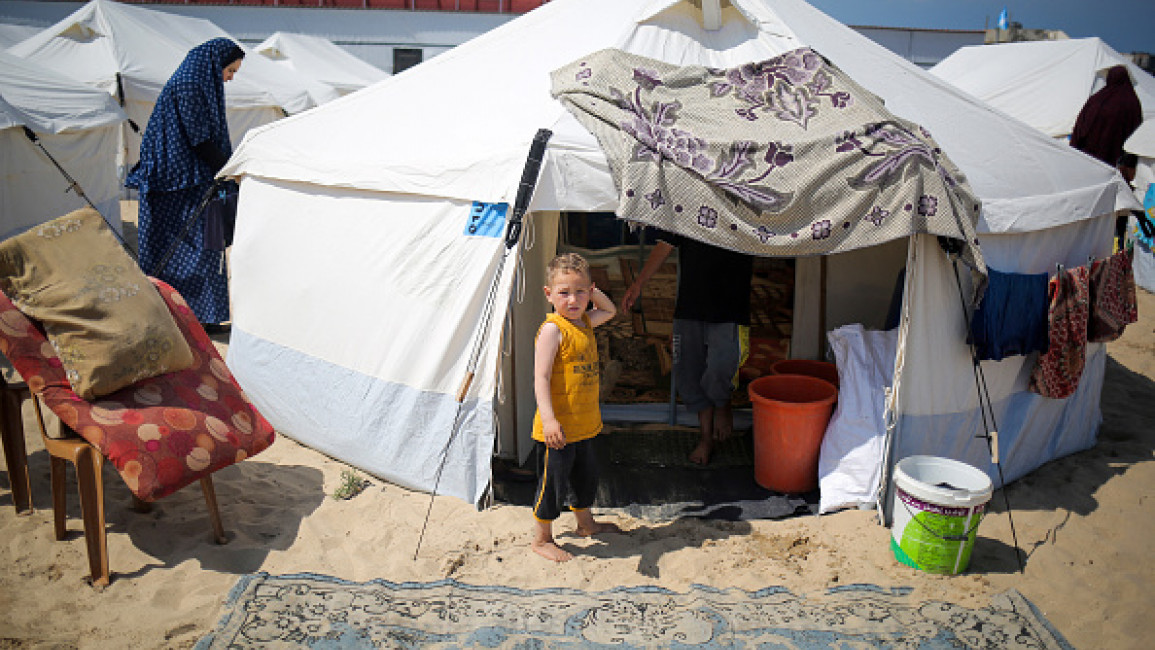Netanyahu to 'postpone' Rafah invasion in aftermath of Iran attack: Israeli media
Israeli Prime Minister Benjamin Netanyahu is reportedly delaying a ground invasion of Rafah in the aftermath of the Iranian drone and missile attacks on the country, Israeli media said.
The postponement of the ground operation in Rafah came after "consultations with security officials" in Israel, Israeli broadcaster Kan 11 said on Sunday. The report added that Netanyahu's government is "certain that the ground operation in Rafah will end the war in the Gaza Strip."
Iran launched around 350 missiles and drones towards Israel late on Saturday, which came against the backdrop of Israel's deadly war in the Gaza Strip - ongoing for over six months.
Iran's attack, carried out in retaliation for a deadly Israeli strike on Tehran's consulate in Damascus, Syria, earlier this month, has triggered international concerns over an escalation of a wider conflict in the region.
The Israeli report came as the Israeli army announced the addition of an additional two reserve brigades for operational activities in Gaza, following a situational assessment.
Israeli Finance Minister Bezalel Smotrich, an ardent supporter of the war in Gaza, has called for the invasion of Rafah and "control over the Gaza Strip", in a post on X on Sunday.
“Abandoning Israeli red lines and pursuing Hamas to reach an agreement will only remove the opportunity to return all detainees," he said.
Last week, Netanyahu insisted that a ground invasion of Rafah would go ahead, saying that a date has been set for the attack, but didn't disclose when exactly.
"Victory [over Hamas] requires entering Rafah and eliminating the terrorist battalions there. This will happen. There is a date," Netanyahu said.
Tel Aviv is also claiming that several Israeli hostages are currently held in Rafah, army spokesperson Daniel Hagari said.
A number of Israeli captives remain in Gaza, though a ceasefire which would enable their return has yet to be agreed on, as Israel has repeatedly rejected Hamas' requests for a complete withdrawal of Israeli forces and an end to the war.
The Israeli premier has insisted on carrying out a ground invasion of the southern Gaza City for months, despite calls from the international community stressing the repercussions of such a move in Rafah, where at least 1.4 million displaced Palestinians are seeking refuge.
Several countries, including some of Israel’s western allies, have said such an invasion would have catastrophic consequences, as there is simply nowhere for displaced Palestinians to go.
Rafah, the southernmost city in the enclave and designated a "safe zone" by the Israeli army, is currently suffering from overcrowding, unhygienic conditions and an insufficient amount of basic needs.
The city has also been attacked frequently by Israel in recent weeks, killing scores of Palestinians.
Israel insists that Rafah is the Palestinian group Hamas’ last stronghold in Gaza.
Israel began waging its lethal war on the Gaza Strip on October 7, flattening much of the territory’s infrastructure and indiscriminately killing Palestinians, mostly women and children.
At least 33,797 Palestinians have been killed as of Monday, with the death toll expected to be much higher due to thousands of people being trapped under rubble. Furthermore, a looming famine and the spread of diseases are likely to exacerbate the death toll.
In December last year, South Africa accused Israel of carrying out a genocide against the Palestinian people in Gaza at the International Court of Justice. Many UN agencies and world leaders have said that Israel’s atrocities are akin to war crimes.



